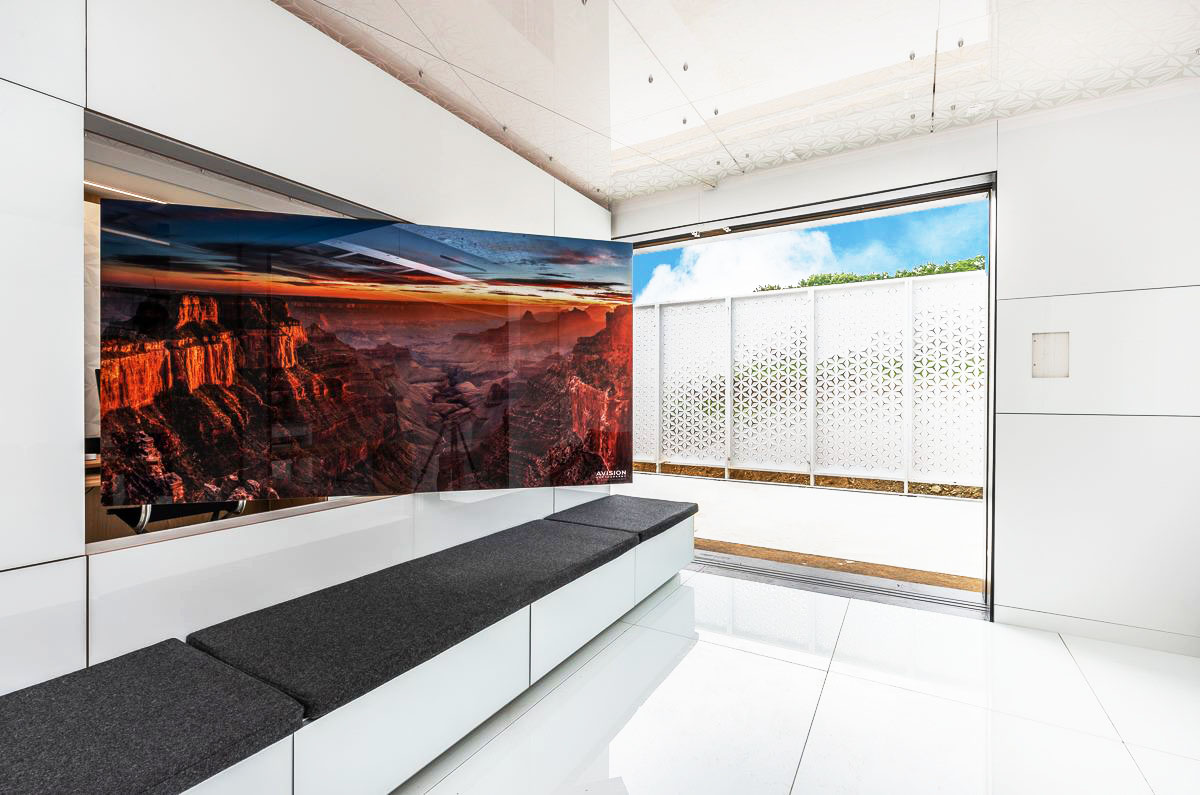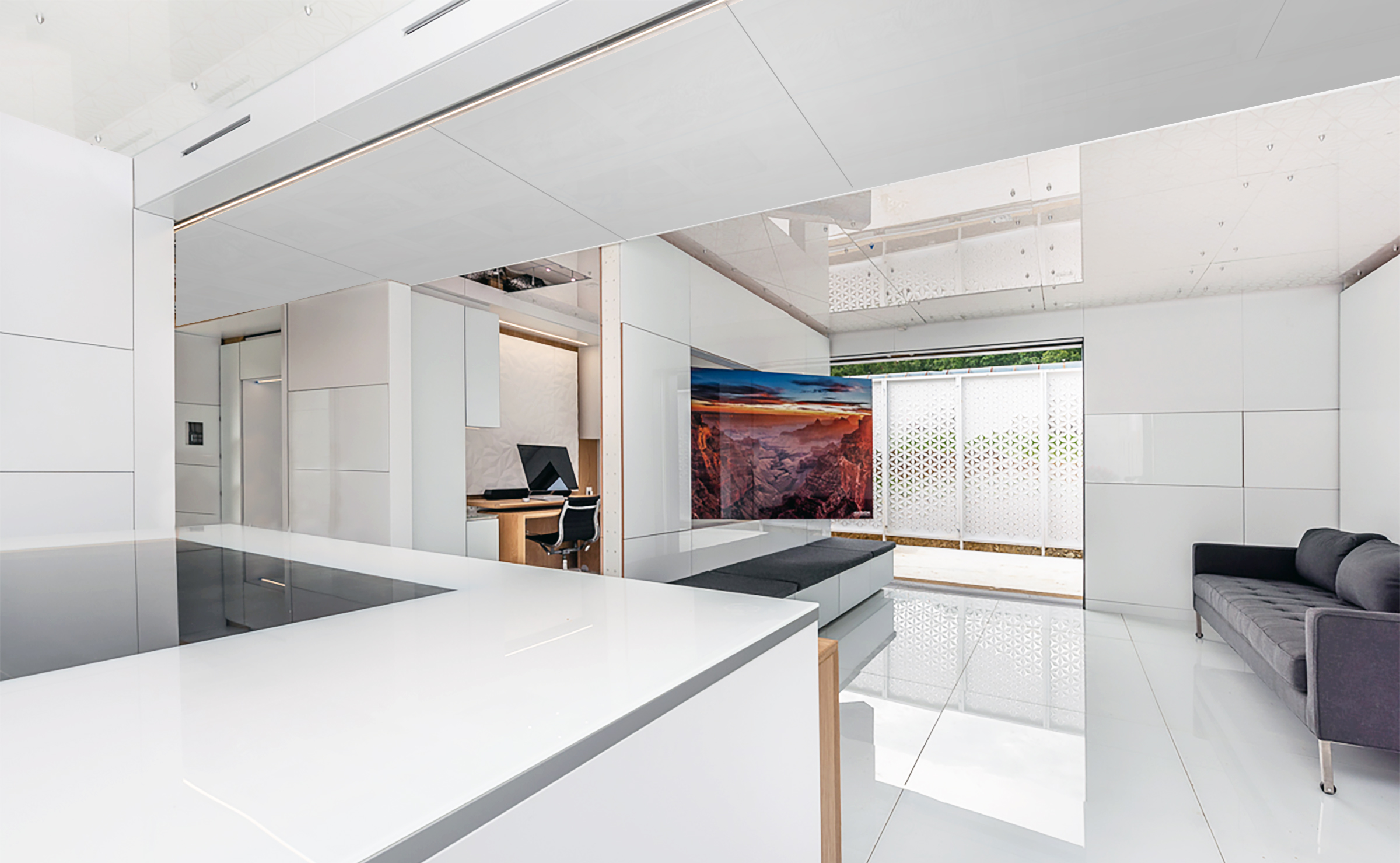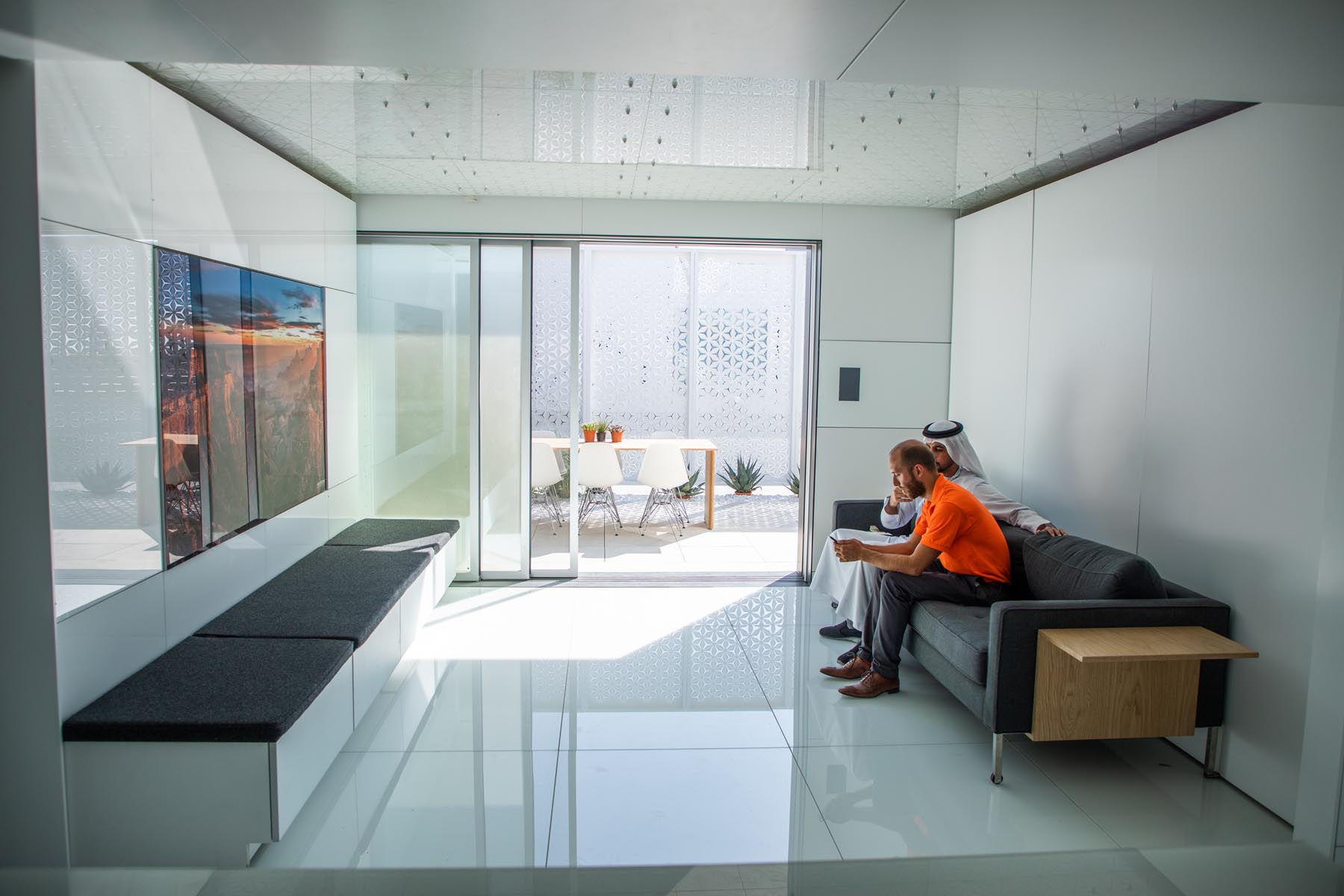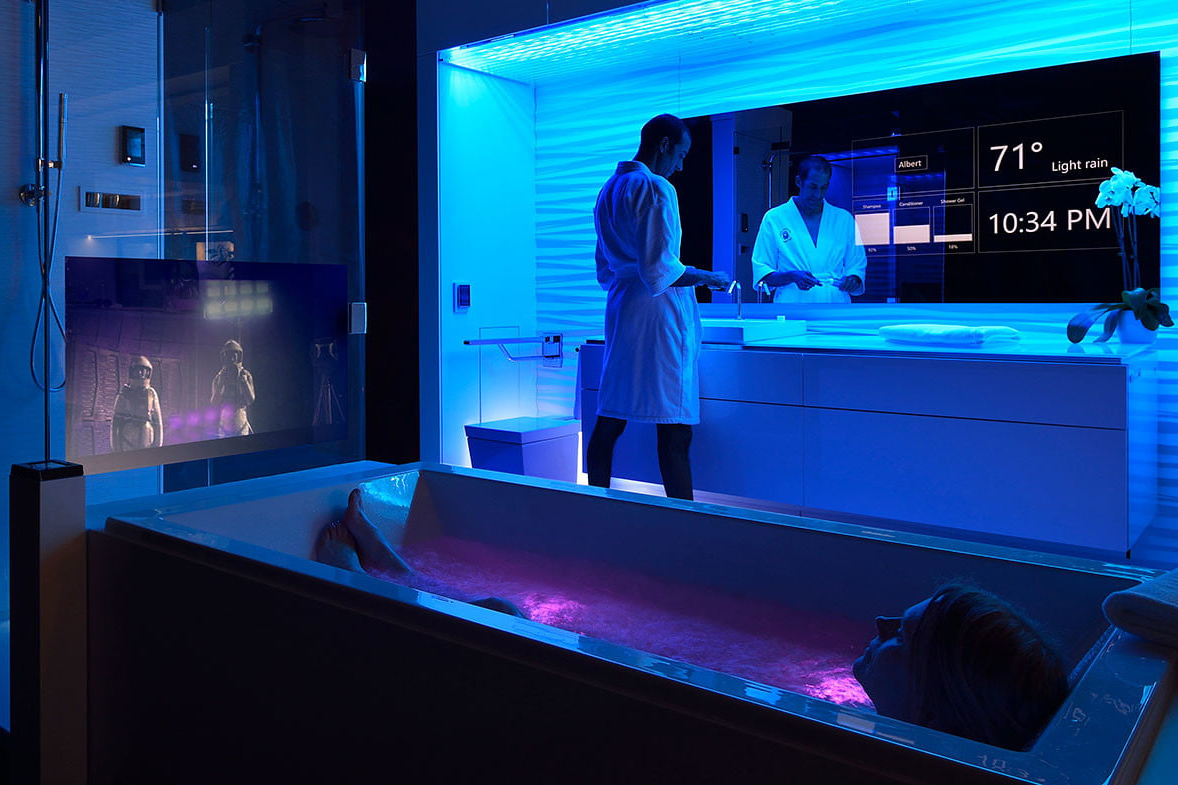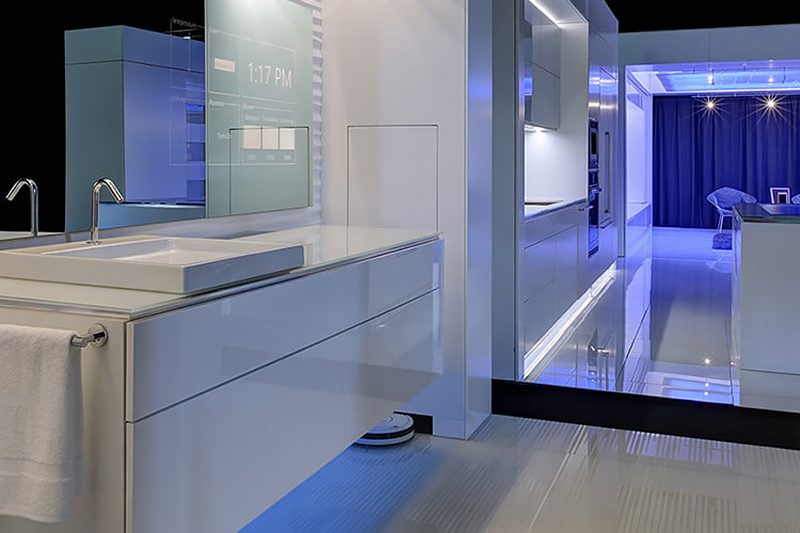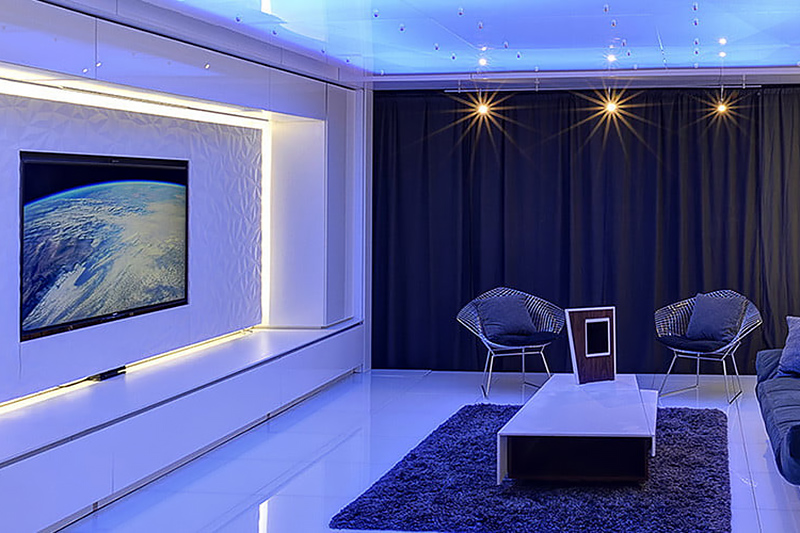Not too long ago, we wrote about a state-of-the-art modular smart home called FutureHAUS made up of plug-and-play modules that use a futuristic linear track system to automatically adjust each room — heck, even the toilet if you want — to each occupant’s individual needs. It might not be the Jetsons, but it still counts as a glimpse of the future in our book.
The students who created it are a whole bunch of big brains from Virginia Polytechnic Institute and State University who went all the way to Dubai, United Arab Emirates, to compete in the Solar Decathlon Middle East. The Solar Decathlon is an international competition created by the U.S. Department of Energy in which universities from all over the globe meet to design, build, and operate a grid-connected solar-powered house. Out of the 15 teams in the contest, Virginia Tech served as the sole U.S. entry this year.
And guess what? They won the contest, earning a prize equivalent to nearly $250,000.

The win follows nearly two decades of accumulated research and two years of accelerated development, including overcoming a fire that burned down a prototype of the house. It took two dozen students and faculty more than a month in the desert outside Dubai to assemble the house.
“We have the most interdisciplinary team that we’ve ever had around any research project, and that’s what it takes. That’s the secret,” said Joe Wheeler, architecture professor and faculty lead for FutureHAUS Dubai. “That’s the formula to making something this amazing.”
Located at the Mohammed bin Rashid Al Maktoum Solar Park in Dubai this year, the competition offered the challenge of adapting the design to heat, dust, and humidity. The competition required houses to use solar energy as the only energy source and employ technologies that permit maximum energy efficiency. The next Solar Decathlon is scheduled to happen in 2020 to coincide with the Dubai Expo.

One of the keys to the FutureHAUS’ adaptability involves the team’s partnership with Accuride International, one of the world’s largest designers and manufacturers of sliding hardware that has modest roots as a tool and die shop that started in 1962.
Accuride’s contribution is a heavy-duty sliding solution that enables the personalization of the FutureHAUS interior, including kitchen cabinets, bathroom vanities, and toilets that can be raised and lowered for individuals based on advanced recognition technologies. These sensors can adjust the surroundings based on a wide variety of factors including voice, gesture, and proximity detection, as well as fingerprint ID and facial recognition.
The FutureHAUS occupies just 900 square feet but it’s a marvel for the industrial design of modular housing. The home is powered by 50 solar panels, incorporates state-of-the-art technology, and is the result of six years of hard work and innovation by over 100 faculty and students.
The FutureHAUS is the brainchild of Wheeler, who serves as a professor at Virginia Tech’s College of Architecture and Urban Studies. Eight years ago, Wheeler was lauded for his design of another project called Lumenhaus, which won the 2010 Solar Decathlon and earned high praise from the American Institute of Architects.
